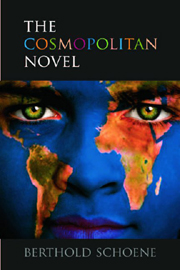Book contents
4 - Global Noise: Arundhati Roy, Kiran Desai, Hari Kunzru
from III - CREATING THE WORLD
Published online by Cambridge University Press: 12 September 2012
Summary
Globalisation is commonly held responsible for eliminating cultural difference and replacing it with worldwide homogeneity, supposedly erasing Empire's core-periphery axiomatic of self and other while in actual fact perpetuating, and indeed considerably exacerbating, what looks suspiciously like the same old inequalities. As Chitra Sankaran asserts, ‘globalization, though it professes to homogenize the human condition, seems actually to polarize it in extreme ways’ (2006: 106). The increasing chasm between rich and poor that splits the world is rapidly being compounded by the establishment of westernised, allegedly ‘cosmopolitan’ Third World elites inside the ex-colonies themselves. As Arundhati Roy writes with regard to her own divided, caste-ridden nation, ‘the people of India have been […] loaded onto two convoys of trucks (a huge big one and a tiny little one) that have set off resolutely in opposite directions. The tiny convoy is on its way to a glittering destination somewhere near the top of the world. The other convoy just melts into the darkness and disappears’ (2001: 2–3).
Inspired by Peter Kalliney's question ‘whether or not globalization theory represents the logical next phase of postcolonial literary scholarship’ (2002: 52), the present chapter introduces connectivity and subalternity as key terms to problematise humanity's hitherto unprecedented glocal entanglement, the proximity and multicultural compression of peoples, which often clash with their actual segregation and the persistence of strictly policed rules of entitlement and exclusion.
- Type
- Chapter
- Information
- The Cosmopolitan Novel , pp. 127 - 153Publisher: Edinburgh University PressPrint publication year: 2009



